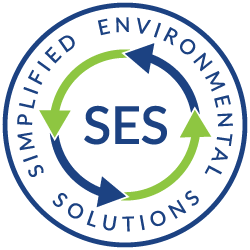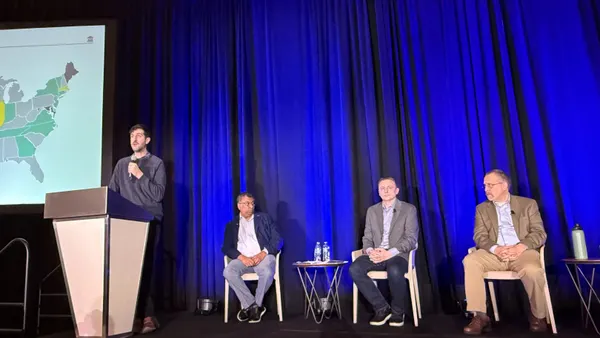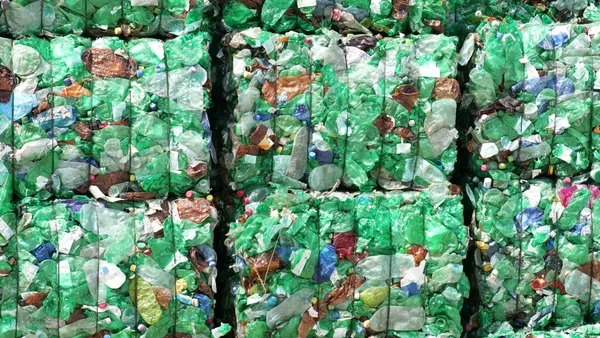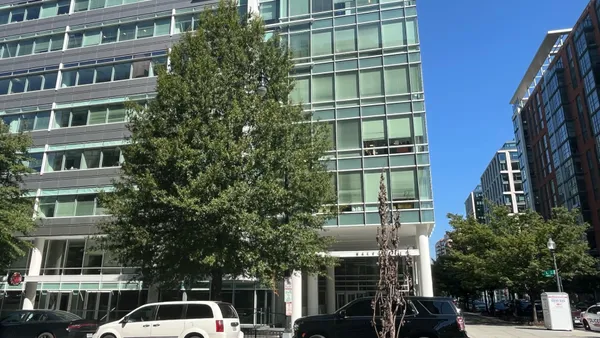Dive Brief:
- Following last month's first-ever Measurement Matters Summit in Chattanooga, TN, Waste Dive asked readers what would be the "most effective way to get more robust, standardized data reporting on materials management systems." Government mandates and financial or regulatory incentives tied for the top spot (at just under 35%), followed by greater private sector transparency and more participation in voluntary programs.
- Based on comments at the summit and the current political climate, no one expects mandates any time soon. Though the possibility for an accreditation system managed by a third party — with rewards for participation — was an intriguing takeaway from the summit's final day of discussions. "The accuracy of the data matters if we're going to be able to use it," Will Sagar, executive director of the Southeast Recycling Development Council, told Waste Dive.
- The need to get participation from all 50 states in the voluntary State Measurement Program (currently 37, plus Washington, D.C. have taken part) is another top priority. Even if the data isn't standardized, this will still help create a common conversation and offer more anecdotal comparisons between various regions.
Dive Insight:
The February summit was a culmination of work started nearly 10 years ago by the Environmental Protection Agency's Region 4 states, and yielded even more interest than co-host SERDC had expected. Nearly 150 officials and executives attended, representing 19 states plus Guam, and discussion was robust over the two-and-a-half day event.
The summit featured a broad range of presentations — including new information from the EPA, The Recycling Partnership and the Environmental Research & Education Foundation, among others. All had interesting data-driven projects in the works, though there was a general sense among presenters that many were operating on parallel tracks.
Without clear agreement on what data to collect, how to collect it, how to analyze it and who gets to see it, the bigger conversations about changing resource management policies will be harder. For those in government, the concept of mandated reporting may be a welcome one. That would mean more information for officials to track what's happening in their states, counties, or cities. For private industry, that concept may be seen as less appealing due to concerns about proprietary information and competition. Comments throughout the event and notes from the last day indicate lots of energy around pushing the data discussion forward.
Upcoming projects such as the Municipal Measurement Program — also managed by ReTRAC Connect — will be important steps in this direction even without standardization. Because voluntary reporting is an area with little disagreement, and one that hasn't been maximized, it's still seen as one of the best areas to pursue.
"The next and immediate steps is we need to demonstrate the value in having [data] to those places where it doesn't exist," said Sagar, who recognized that budgets can still be a constraint. "We may get the state agency to see the value, but that doesn't mean they're going to have the legislative bandwidth to make it happen."
Sagar recalled how some states have previously collected data and not used it. Others have encountered legislative efforts to repeal reporting requirements, because they were viewed as burdensome.
In some cases this resistance comes from an industry not known for transparency. Changing that, and a general lack of understanding about resource management practices among legislators or the general public, is part of an ongoing struggle for professionals throughout the field.












